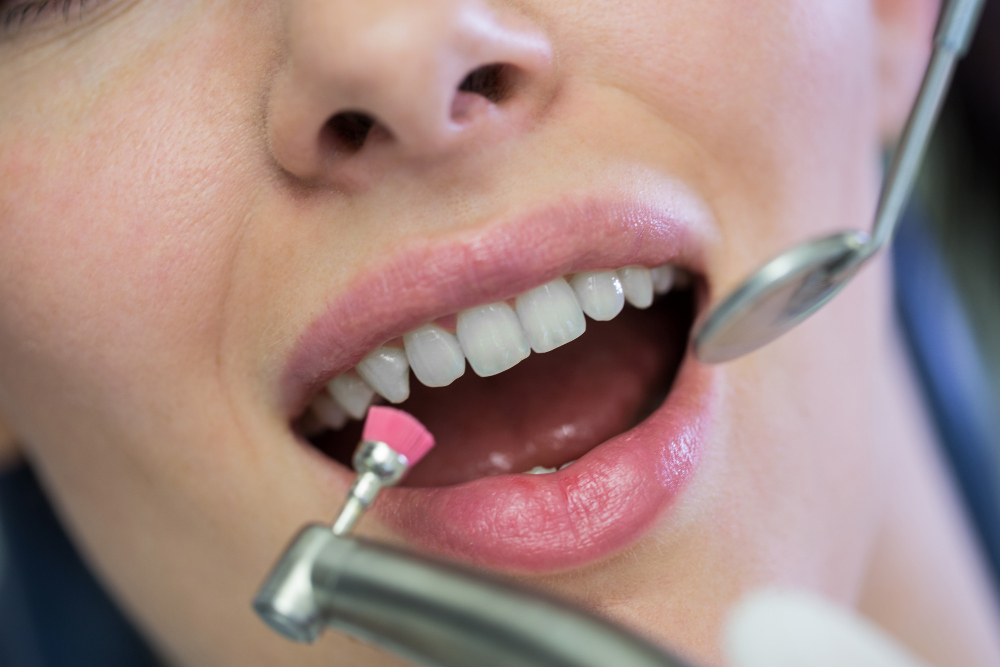Dental Polishing

Dental polishing is a routine dental procedure performed to remove surface stains, plaque, and tartar from teeth, resulting in a smoother, brighter smile.
Understanding Dental Polishing: Dental polishing involves the use of specialized instruments and polishing agents to gently remove surface imperfections and stains from the teeth, leaving them clean and smooth.
Procedure:
- Preparation: The dental hygienist or dentist begins by examining the teeth and assessing the need for polishing.
- Plaque and Tartar Removal: Any plaque or tartar buildup is removed from the teeth using scaling instruments.
- Polishing Agent Application: A polishing paste containing abrasive particles is applied to the teeth.
- Polishing: Using a rotating rubber cup or a handheld polishing instrument, the dentist or hygienist gently polishes the teeth to remove surface stains and smooth out rough areas.
- Rinsing: The mouth is rinsed to remove any residual polishing paste or debris.
- Fluoride Application: In some cases, a fluoride treatment may be applied to the teeth to strengthen enamel and prevent cavities.
Benefits of Dental Polishing:
- Stain Removal: Dental polishing effectively removes surface stains caused by food, beverages, and smoking, restoring the natural brightness of the teeth.
- Plaque and Tartar Removal: Polishing helps remove plaque and tartar buildup, reducing the risk of cavities and gum disease.
- Smooth, Clean Feel: Polished teeth feel smoother and cleaner, enhancing oral hygiene and preventing bacterial buildup.
- Improved Aesthetics: A polished smile looks brighter and more attractive, boosting confidence and self-esteem.
Frequency of Dental Polishing:
- Routine Dental Visits: Dental polishing is typically performed as part of a routine dental cleaning and check-up, recommended every six months for most patients.
- Individual Needs: Depending on the individual’s oral health needs and risk factors, the frequency of dental polishing may vary.
Aftercare:
- Maintain Oral Hygiene: Brushing and flossing regularly help maintain the results of dental polishing and prevent future stains and plaque buildup.
- Healthy Lifestyle: Avoiding foods and beverages that stain the teeth, such as coffee, tea, and red wine, can help prolong the results of dental polishing.
- Regular Dental Visits: Scheduling regular dental check-ups allows the dentist to monitor oral health and recommend additional polishing as needed.
